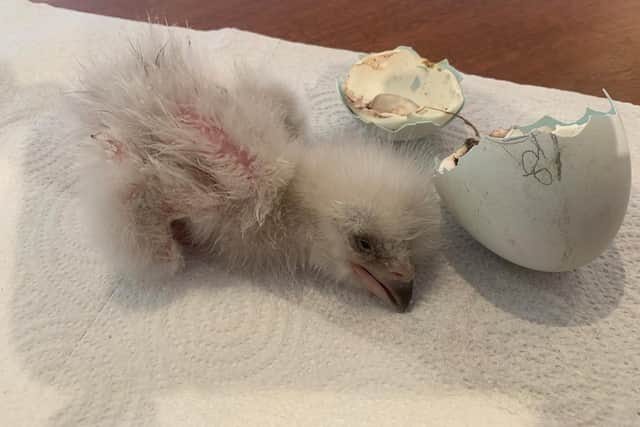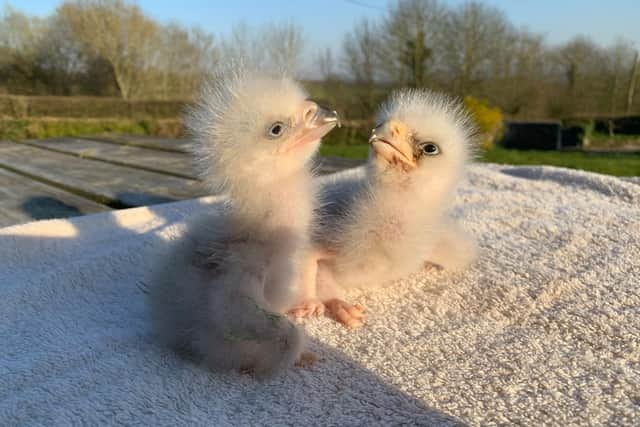Yorkshire birds of prey centre names chicks after Rishi Sunak and Boris Johnson
The Steller’s sea eagles, named Rishi and Boris, hatched at the National Centre for Birds of Prey, in Helmsley, North Yorkshire, during the last week.
The endangered birds are part of a global breeding programme and are likely to be trained for flying displays until they are old enough for breeding.
Advertisement
Hide AdAdvertisement
Hide AdCharlie Heap, director of the centre, said it would have had to lay off its seven staff without the Government’s help.


He said: “I thought everything was just falling down around our ears. Then when Rishi Sunak announced this wage support thing, it saved us.
“I didn’t even vote in the last election because I didn’t think much of any of them.
“And I was quite vocal to everybody that we wouldn’t get any help from the Government but, blow me down, he proved me startlingly wrong and it’s the biggest thing a politician has ever done for me so we thought naming the chicks after them was the very least we could do.
Advertisement
Hide AdAdvertisement
Hide Ad“There’s light at the end of the tunnel and we can hang on for the time being.”


Mr Heap said he believes they are the only centre breeding Steller’s sea eagles in the UK.
The birds are the biggest eagle in the world, weighing more than 7kg and with a wing span of 2.4 metres when fully grown, and are listed as vulnerable by the International Union for the Conservation of Nature (IUCN).
Mr Heap said the centre takes the eggs from the aviary after 10 days of incubation to prevent the parents eating the young after hatching.
Advertisement
Hide AdAdvertisement
Hide AdThey will reintroduce the chicks to their parents when they are about a week old.
He said: “They are doing very well, they are growing like mad. They will be back with mum and dad as soon as possible. We successfully bred two last year so we know it works. They made fantastic parents last year.”
Mr Heap said the centre had griffon vulture and golden eagle eggs due to hatch in the near future.
He said: “We need a bit of joy at the moment. Eggs are full of promise of wonderful things in the future.”
Comment Guidelines
National World encourages reader discussion on our stories. User feedback, insights and back-and-forth exchanges add a rich layer of context to reporting. Please review our Community Guidelines before commenting.